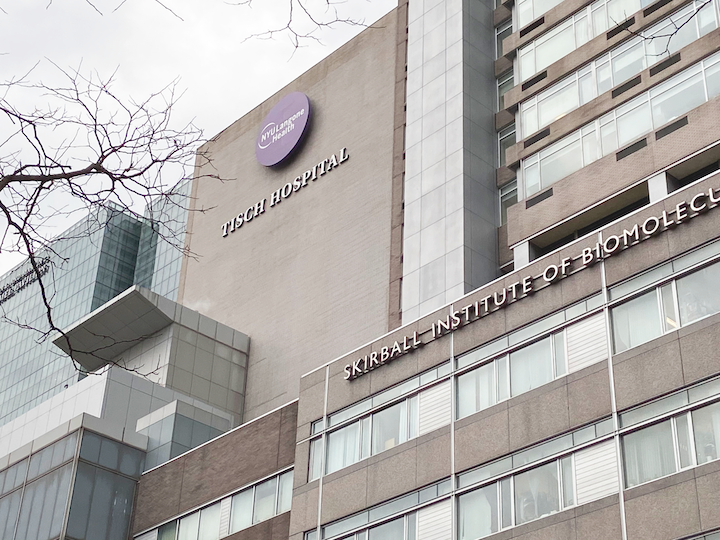Students and faculty should expect a return to fully in-person classroom instruction for the Fall 2021 semester, according to the NYU administration. Provost Katherine Fleming announced the plan in a letter published Feb. 23, which NYU Local reported on the same day. This plan represents an end to the combination of in-person, blended and online courses that students have become familiar with over the past two semesters.
“We are indeed planning to resume in-person instruction in full for Fall 2021,” Fleming wrote in a statement to WSN. “That means faculty teaching students in the classroom … But as with everything else about [COVID-19], it’s hard to be really precise on forward planning.”
According to Fleming, the decision to return to fully in-person instruction was based primarily on the increasing availability of COVID-19 vaccines rather than a decline in the current case count.
“We expect that vaccinations will be much more widely available as the roll-out continues,” Fleming said. “And, based on assurances from the President, we expect all faculty and staff and students to have access to vaccines by the start of the fall term.”
President Joe Biden vowed on March 2 that there would be enough vaccine supply “for every adult in America by the end of May” — an update to an earlier timeline, which would see vaccines available for everyone by the end of July or beginning of August.
The updated timeline is partly based on a White House sanctioned deal between Merck and Johnson & Johnson. These two pharmaceutical corporations are expected to produce millions of doses of a single-shot vaccine. New York City’s mass vaccination sites, including the Javits Center and Yankee Stadium, have already begun to administer this shot, according to a press release from Gov. Andrew Cuomo’s office.
At least 7,000 members of the NYU community — eligible as members of New York’s Phase 1a and Phase 1b groups — were offered vaccinations through NYU Langone Medical Center. The university has been approved as a vaccination site and is waiting to receive stock from the state. NYU’s Office of Strategic Assessment, Planning & Design and the COVID-19 Prevention and Response Team have released a blueprint for a planned vaccine distribution center on the first floor of Bobst Library and have announced another vaccination site at the Student Health Center.
“NYU will encourage and assist the vaccination effort in every way we can, in compliance with the law,” Fleming said. “As a state-authorized vaccination site, we intend to vaccinate community members here at our Student Health Centers—both at [Washington Square] and in Brooklyn—and at a converted space in Bobst Library as soon as we receive supply. We’ll notify the community when we have greater clarity on exactly when they’ll be up and running.”
In New York City, the rate of new cases, though declining, remains at around 3,600 new cases per day as of press time. Experts are also warning that a new variant of the virus, named B.1.526, is spreading rapidly throughout the city and tri-state area.
“We certainly are taking the New York variant, the 526, very seriously,” Dr. Anthony Fauci, Chief Medical Advisor on COVID-19 to President Biden, said in a recent White House press briefing. “We have to really keep an eye on that for its ability to evade both monoclonal antibod[ies] and, to a certain extent, the vaccine-induced antibodies. So it’s something we take very, very seriously.”
NYU’s current safety guidelines will not necessarily disappear, according to Fleming, even once mass vaccination has been achieved.
“The exact form that classroom teaching will take (occupancy limits, social distancing, face masks, et cetera) will need to be determined over the coming months as the pandemic and public health protocols evolve,” she said. “In spite of what we may be planning, public health and state and city recommendations will always trump our plans.”
Days prior to Fleming’s announcement, the CPRT warned of a rise in cases. In-person contact between students as well as both small and large gatherings were the two factors that contributed to the spike.
“To continue to facilitate physical distancing, we’re currently planning to accommodate classes in bigger spaces and at lower occupancy,” Fleming said. “We’ll likely begin the year mandating that students and instructors continue to wear face coverings until public health officials advise us otherwise.”
Fleming also confirmed that BioReference swab and binx health saliva tests would remain available to NYU students in Fall 2021, stating that regular testing has been essential to controlling the virus’s spread on campus.
“We have no plans to discontinue our testing program for the foreseeable future,” she said.
Despite the optimism of the administration’s plans for faculty and students to return to on-campus, in-person instruction, Fleming admitted that some courses are likely to be taught in a blended or remote format.
“Though we’ll endeavor to promote in-person learning wherever possible, the mode of delivery for classes will likely be determined on a case-by-case basis, by professors in consultation with their departments and units, and taking into account the needs of students particularly those facing ongoing travel restrictions,” Fleming said.
Still, some parts of campus life could begin to approach normalcy.
“As more and more of our community members get vaccinated, we’ll be able to resume doing the things we took for granted back in 2019—interacting in laboratories, attending small-group seminars, eating in on-campus dining locations, going to the gym,” Fleming said.
A version of this article appeared in the Monday, Mar. 8, 2021, e-print edition. Email Suhail Gharaibeh at [email protected].






















































































































































